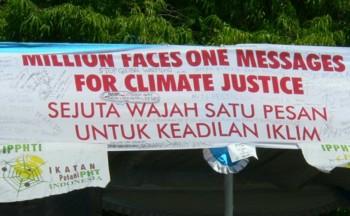- Home
- About
- Campaigns
- Regions
- Themes
- Agrofuels
- Climate justice
- Coastal communities and fisheries
- Disasters
- Economy & debt
- Energy
- Foreign investment
- Forests & forest fires
- Human rights
- Indigenous Peoples
- International Financial Institutions
- Land and food security
- Laws & regulations
- Mining, oil & gas
- Plantations
- Politics & democracy
- REDD
- Regional autonomy
- Transmigration
- Water and dams
- Women
- Publications
- Links
- Contact
Theme
- Climate justice (60)
- Indigenous Peoples (45)
- Forests & forest fires (34)
- REDD (29)
- Human rights (25)
- Laws & regulations (21)
- Plantations (21)
- Land and food security (20)
- Foreign investment (17)
- International Financial Institutions (11)
- Mining, oil & gas (11)
- Coastal communities and fisheries (10)
- Energy (10)
- Women (9)
- Agrofuels (8)
- Economy & debt (8)
- Politics & democracy (6)
- Regional autonomy (6)
- Water and dams (2)
- Disasters (1)
- Transmigration (1)
Region
- Indonesia (52)
- Sumatra (18)
- Java, Madura & Bali (6)
- NTT & NTB (4)
- Kalimantan (10)
- Sulawesi (5)
- Maluku (1)
- Papua (15)
- Europe/UK (17)
- International (28)
Publication
- Newsletter articles (50)
- Special reports & briefings (2)
- Books (2)
- Photos and videos (5)
- Press releases & position papers (3)
- Letters (4)
Climate Justice and sustainable livelihoods

Banner in both languages
